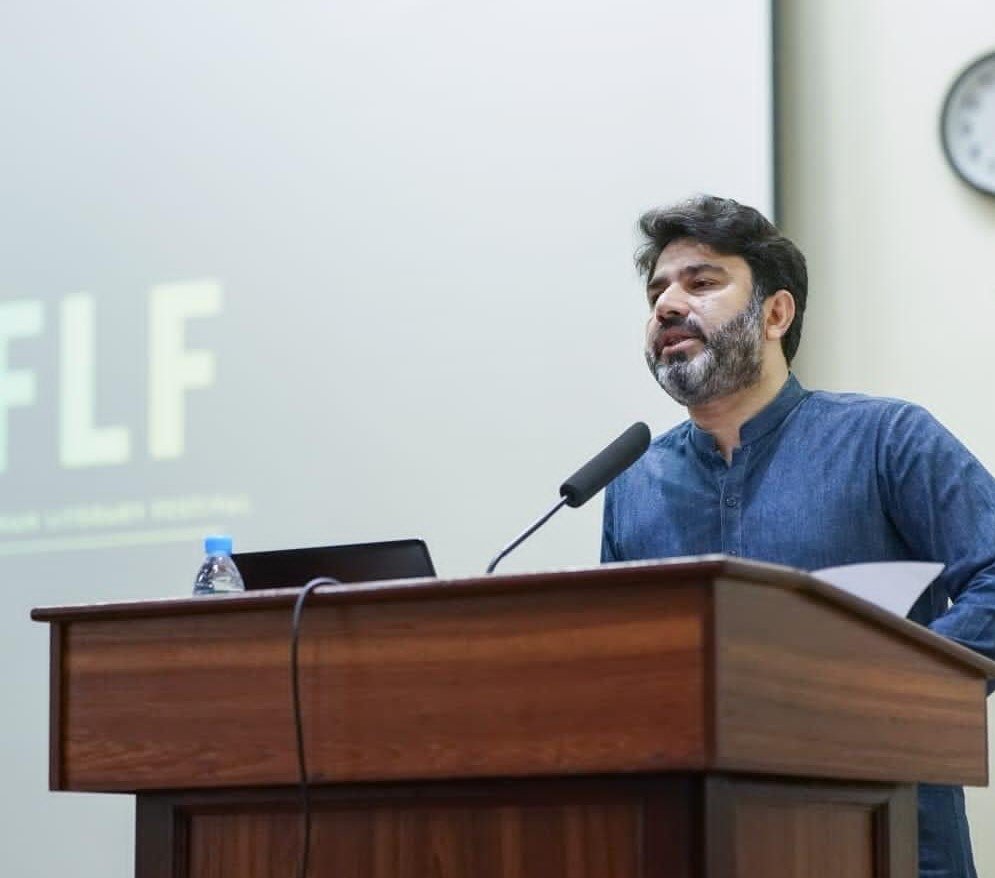From time to time different ideologues and interpreters of Islam have acquired enviable fame in Pakistan. There have been quite a few scholars here who have established their niches by impressing the young educated Muslims. One such scholar who now is being considered the modern face of Islam is Jawed Ahmed Ghamidi. He is a familiar face now for many as he is seen almost on every Pakistani channel. His language of analysis is exquisite. In impeccable Urdu, he comments on his understanding of the Quran and by virtue of his logical argumentation convinces a number of people in our society.
He has been around for quite some time now. The other day I listened to his lecture on the thought of Ghulam Ahmed Pervaiz which was delivered back in the late 80s. The manner in which he debunked the so-called “logical” manner of Ghulam Ahmed Pervez was systematic and quite appealing. His style was systematic and methodical, and never did he comment on the context which might have necessitated the rise of Ghulam Ahmed Pervez. But that precisely is Ghamdi’s manner: the apolitical manner. His vision is apolitical and if I may dare add, acontextual. (But before commenting on that, let me share my thoughts about his contribution to the ‘god-debate’ here in Pakistan.)
A talk that I thoroughly enjoyed was Ghamdi’s ‘god debate’ with Dr. Hoodbhoy in Alif, a Geo Tv’s programme. I found his arguments remarkable and Hoodbhoy was stumped a number of times during the show. He kept repeating his points and did not have anything convincing to counter Ghamdi’s arguments. Here is a link to 2nd episode of the programme:
http://www.youtube.com/watch?v=VHgYXLPZCgU
But what I find very disturbing in Ghamdi’s thought, and which to me lays bare his apolitical and acontextual approach, is his vociferous advocacy of individualism in the face of a decadent system that can never be uprooted without a collective effort. He proposes subservience to Allah at an individual level and allows the system to take its course, regardless of the evils that are spread through the same system.
Why would Ghamidi, who is otherwise so logical and convincing, fail to appreciate this very basic postulate of the Islamic worldview? One point in his ideology that I find very absurd is the claim that the establishment of a just/Islamic system was obligatory on prophets but not on Muslims at large. The best explanation that I may present is that perhaps Ghamidi is tied to something that has happened in his past. He seceded from the Jamat-e-Islami by disagreeing with Maudoodi. Perhaps, it is his aversion to the Jamat’s way of politics that has led him to deny Muslims a movement that has been the tradition of all known prophets. I do agree that the present tenor of political Islam is indeed despicable, yet denying the existence of an alternative, humanistic effort to establish a society based on Quranic principles is unacceptable. Ghamidi’s assertion reminds me of Mathew Arnold who advocated that thinkers/critics must operate in the intellectual realm and should not be too earnest to enter into the political realm.
Well, I do not agree with both. Perhaps, it is this interpretation of Ghamdi which compelled him to only deliver sermons and never seriously ponder over the possibility of change in Pakistan. Otherwise, he must have thought of developing a ‘party’ that could have tried to achieve what I have earlier stated. Instead, through the decades, he has kept delivering his sermons and establishing a “fan club” around himself. The very fan club now seems impotent to do anything to end his exile.
I find his denial of the need for a system based upon Islamic principles paradoxical to many of his thoughts and at times absurd. It is like saying that good thought has to be presented, but this process must not be facilitated by establishing an organization. Ghamidi sahib himself established an institution to spread his ideas. Now if Islam has a lot of good ideas to offer for the betterment of society, why must not there be an effort to establish a system where all these ideas are institutionalized?
Ghamidi sahib to me is an individualist to the core. In an age where evil has entrenched itself and sustains itself through the power of its system, advocating against the establishment of a system based upon higher human values that Islam presents is indeed a questionable act to me.
The writer is a teacher of English Literature at Punjab University.
(Old blog post from the writer’s personal blog – Shahzeb Khan’s blog: Pakistan: politics, perspectives and possibilities)
